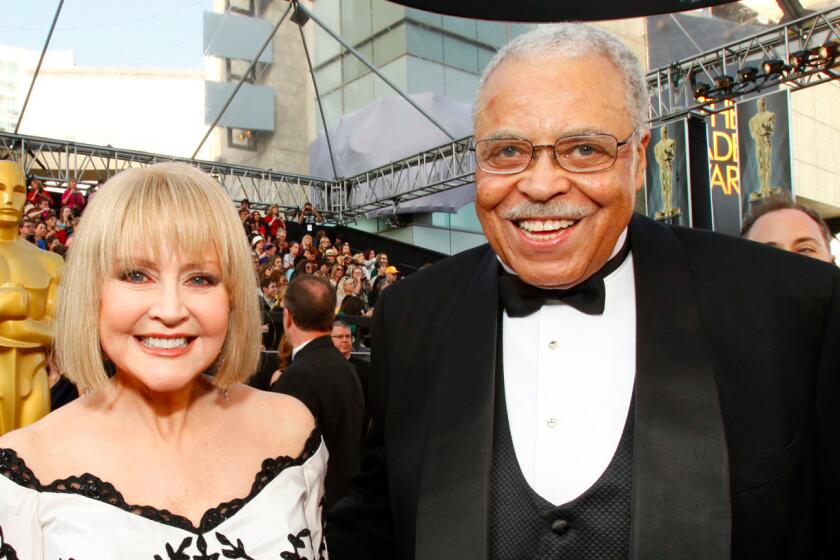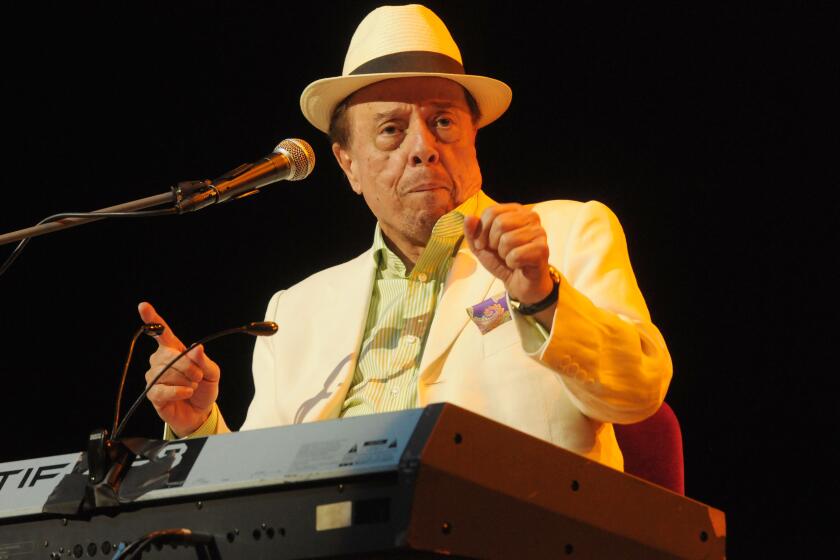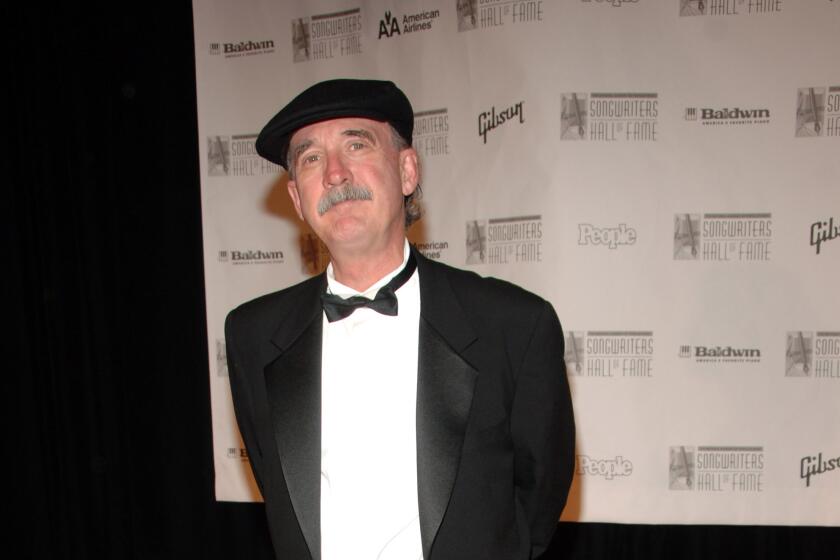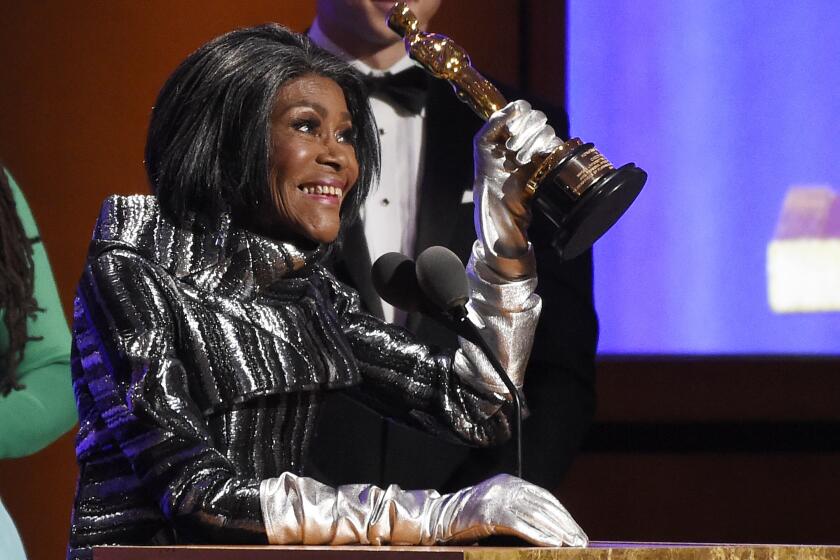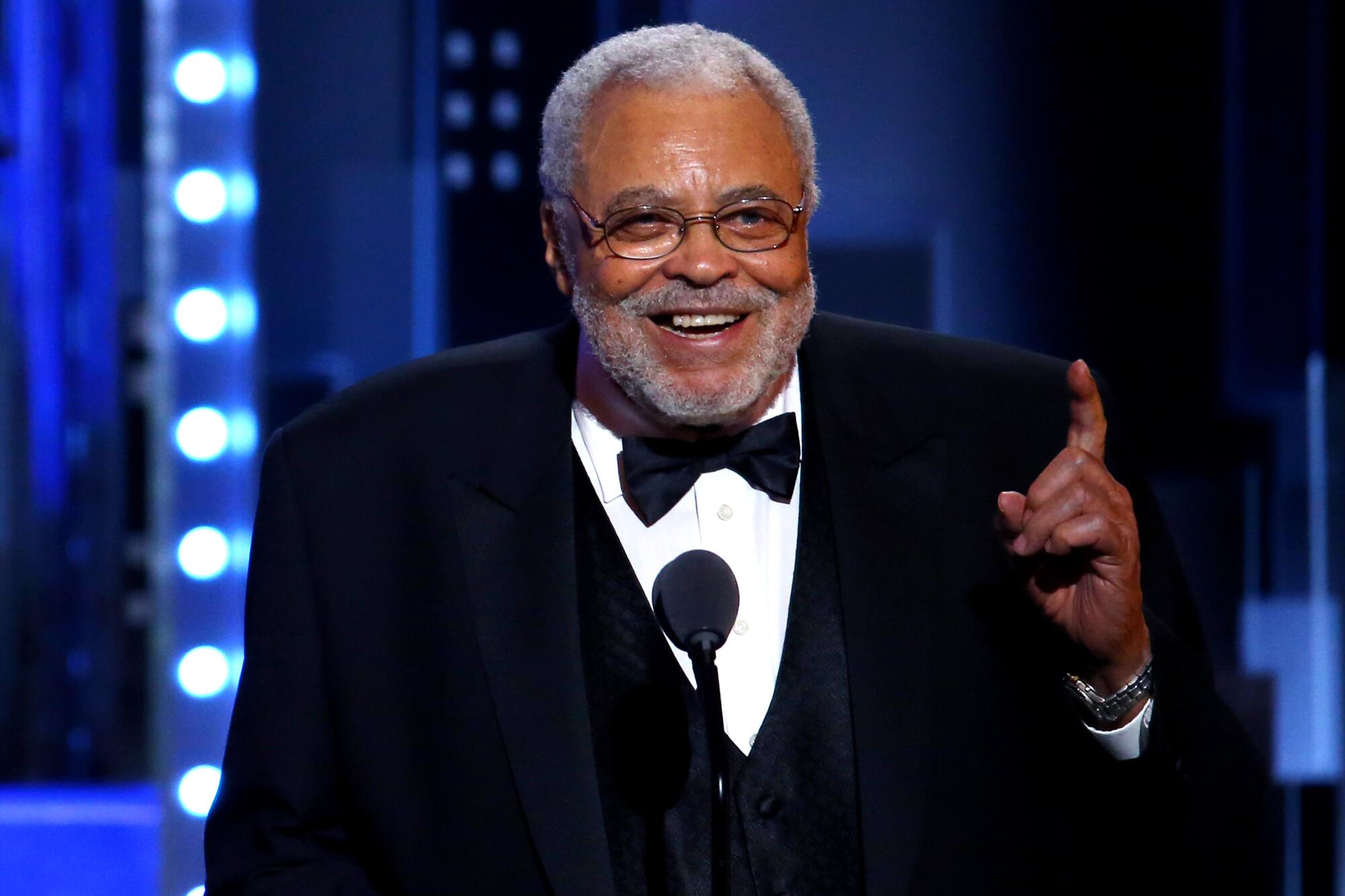
Oscar-nominated actor James Earl Jones, who stuttered as a child, then burst forth to become one of America’s most recognized and articulate voices, has died.
Jones died Monday morning at his home in New York, his longtime agent Barry McPherson confirmed in a statement shared with The Times. A cause of death was not revealed. He was 93.
“That booming voice. That quiet strength. The kindness that he radiated,” Kevin Costner, Jones’ “Field of Dreams” co-star, wrote on Instagram in tribute.
Costner added: “Only he could bring that kind of magic to a movie about baseball and a corn field in Iowa. I’m grateful to have been a witness to him making that magic happen.”
“There will never be another of his particular combination of graces,” actor and TV host LeVar Burton said in a tribute shared on X (formerly Twitter).
Actress Cecilia Hart, the wife of actor James Earl Jones, died Oct. 16 after a year-long battle with ovarian cancer.
Colman Domingo dubbed Jones “a master of his craft” on X, adding, “We stand on your shoulders.” The “Sing Sing” and “Euphoria” star added, “Rest now. You gave us your best.”
Mark Hamill, who portrayed Luke Skywalker in the “Star Wars” films, mourned his on-screen father as Quinta Brunson, actor Octavia Spencer and Major League Baseball also paid tribute on social media.
“Legendary doesn’t even begin to describe his iconic roles and impact on cinema forever,” Spencer wrote. “His voice and talent will be remembered always.”
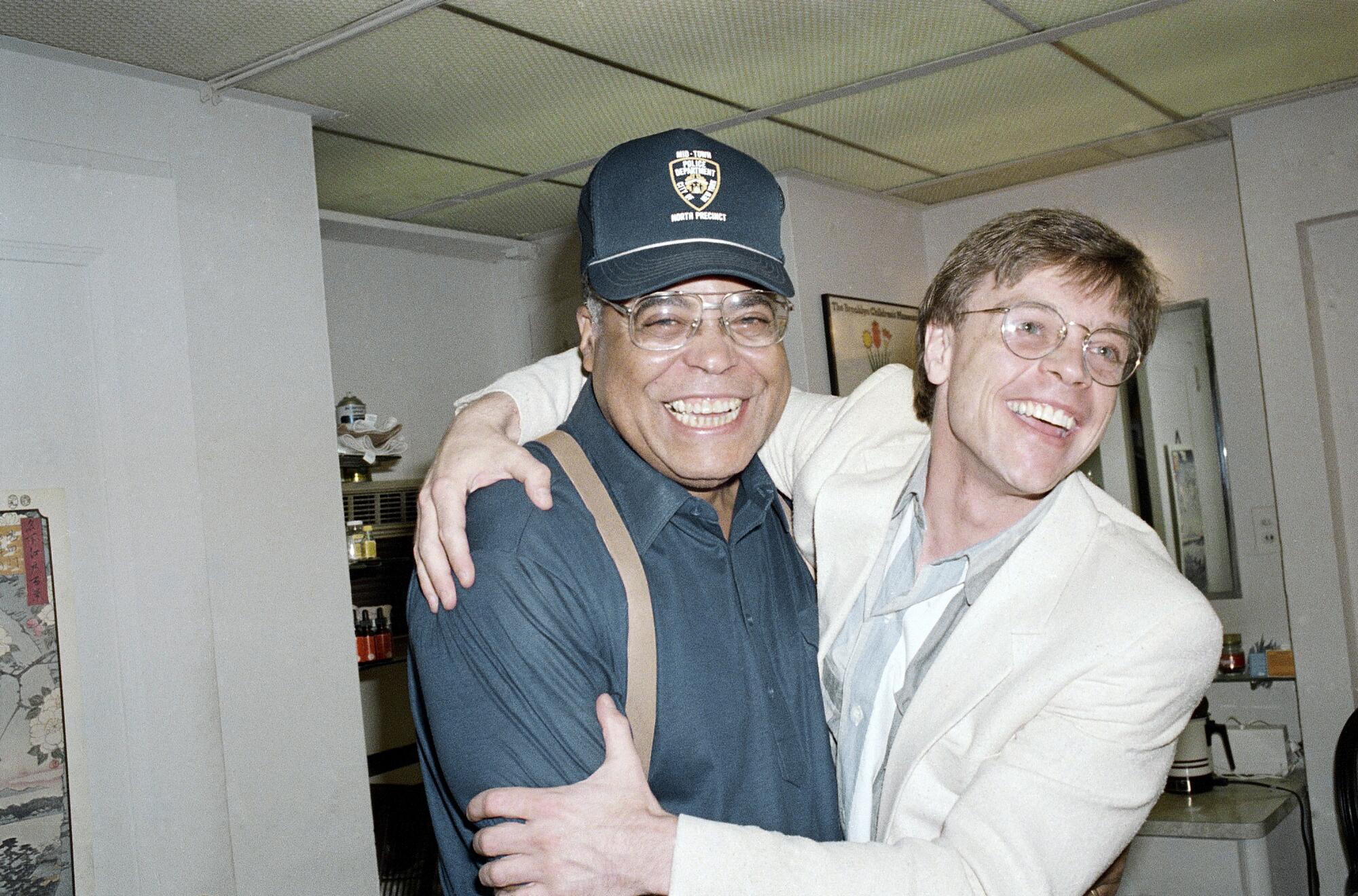
Jones, who was known for his rich, thunderous voice and commanding, almost forceful presence, had a decorated career that spanned decades and a multitude of roles — from King Lear to Darth Vader.
Jones said it was the painful experience of being a stutterer that made him appreciate speech with such passion.
Sérgio Mendes, the Grammy-winning Brazilian band leader who helped popularize bossa nova in the ‘60s, died Thursday in Los Angeles. He was 83.
“The desire to speak builds and builds until it becomes part of your life force,” Jones recalled in his biography, writing of the years of childhood silence preceding his stage and film career.
“If I hadn’t been a stutterer,” Jones told The Times in 2014, “I would never have been an actor.”
Critics were fascinated by Jones’ booming, resonant voice. They called him thunder in a bottle; they compared him to civil rights activist Paul Robeson — and Paul Bunyan. Jones’ voice was “pitched in the key of heroism,” wrote Washington Post critic Peter Marks.
Some mistakenly called him a baritone. He wasn’t. He was a rare, natural bass — a lucky birthright, he said.
To that genetic good fortune, Jones added acting prowess. He was distinguished by the “elemental force he brings to the stage,” Marks wrote. He had Tony-winning Broadway turns, an Oscar-nominated film role and performances in camp movies and prime-time television dramas.
James Earl Jones is--as one would expect--a formidable presence in person.
He was Othello, Hamlet and Lear. He did commercials and, of course, voice roles — so many that he lost track. “This ... is CNN,” he boomed. In public, he was more often recognized for his voice than his face.
Long after childhood, he still battled the stutter. He remained transfixed by the challenge of emotional expression, which he called a deep human need.
“The farther you get into language and articulation, the farther you get from emotion. You have to get back into song and poetry,” he told The Times in 2002.
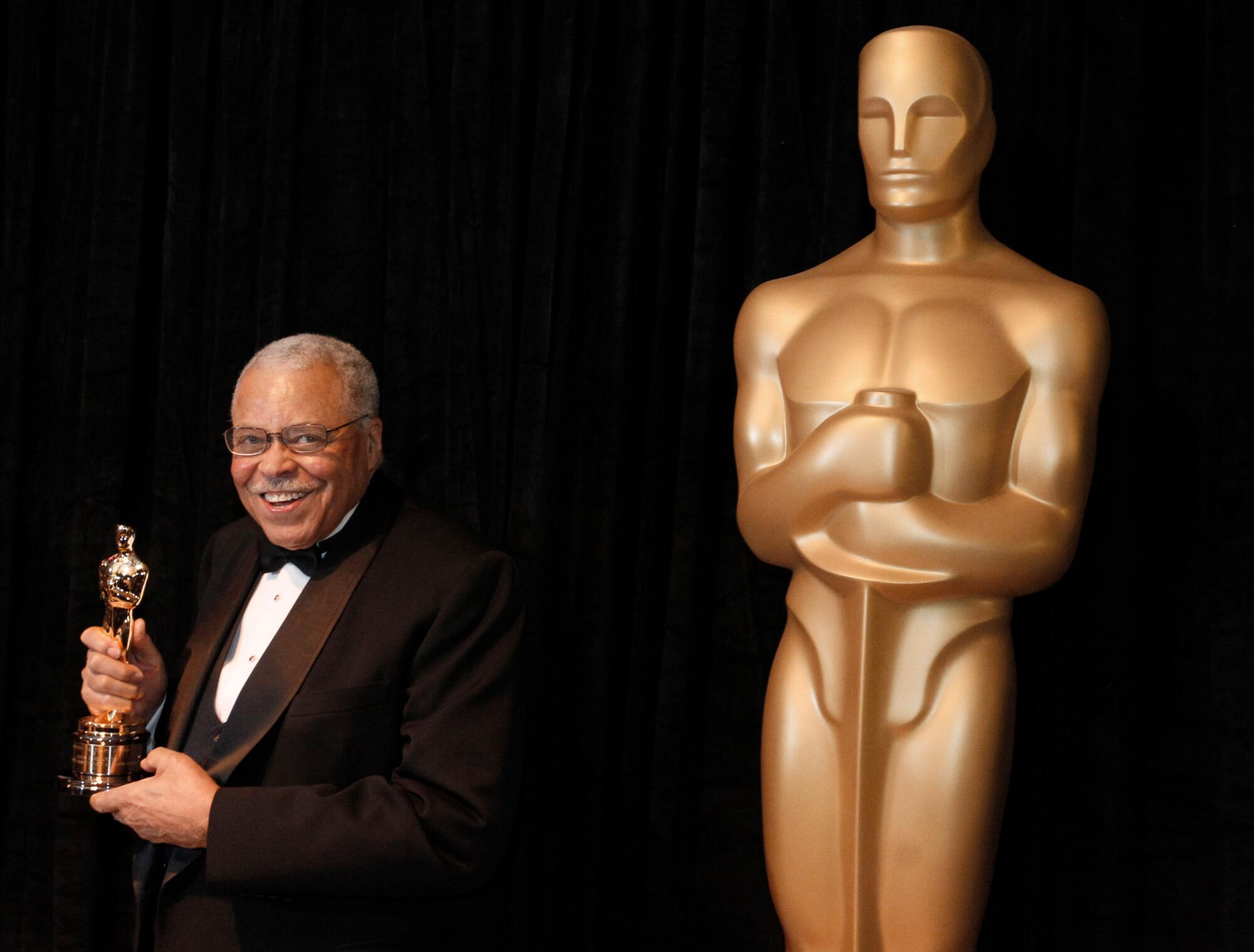
James Earl Jones was born Jan. 17, 1931, in Arkabutla, Miss., the son of boxer and actor Robert Earl Jones and Ruth Williams, a tailor. He was raised by his grandparents Maggie and John Henry Connolly; his father left home before he was born. His mother, whom he later suggested had mental health problems, was often away. As he reached school age, he and his family moved to Michigan.
At age 12, Jones began to stutter. In his distress, he fell silent and scribbled notes in lieu of speaking. His self-esteem eroded, and he became a nearly anonymous figure in school.
But a high school teacher discovered that he wrote poetry in secret, Jones recounted in his 1993 biography, “Voices and Silences,” written with Penelope Niven. “If you like words that much, James, you ought to be able to say them out loud,” the teacher told him.
The teacher did more than encourage Jones. He researched stutterers and learned that some were helped by reading aloud.
The teacher persuaded Jones to try this technique. Jones’ life pivoted on what came next: He found that he was able to read before the class without a stutter. The teacher then handed him a volume of Shakespeare and told him to read aloud for practice, Jones said.
The Texas native and Songwriters Hall of Fame inductee penned hits for Whitney Houston, Barry Manilow and Steve Winwood, among others.
Years later — long after he had become a famous actor and household name — Jones continued to mention the teacher in interviews, finally crediting by name — first and last — Donald Crouch.
Jones won a scholarship to the University of Michigan and earned a baccalaureate theater degree in 1955 (16 years later, he also received an honorary degree from the school). He served two years in the Army and then went to New York, where he met his father for the first time.
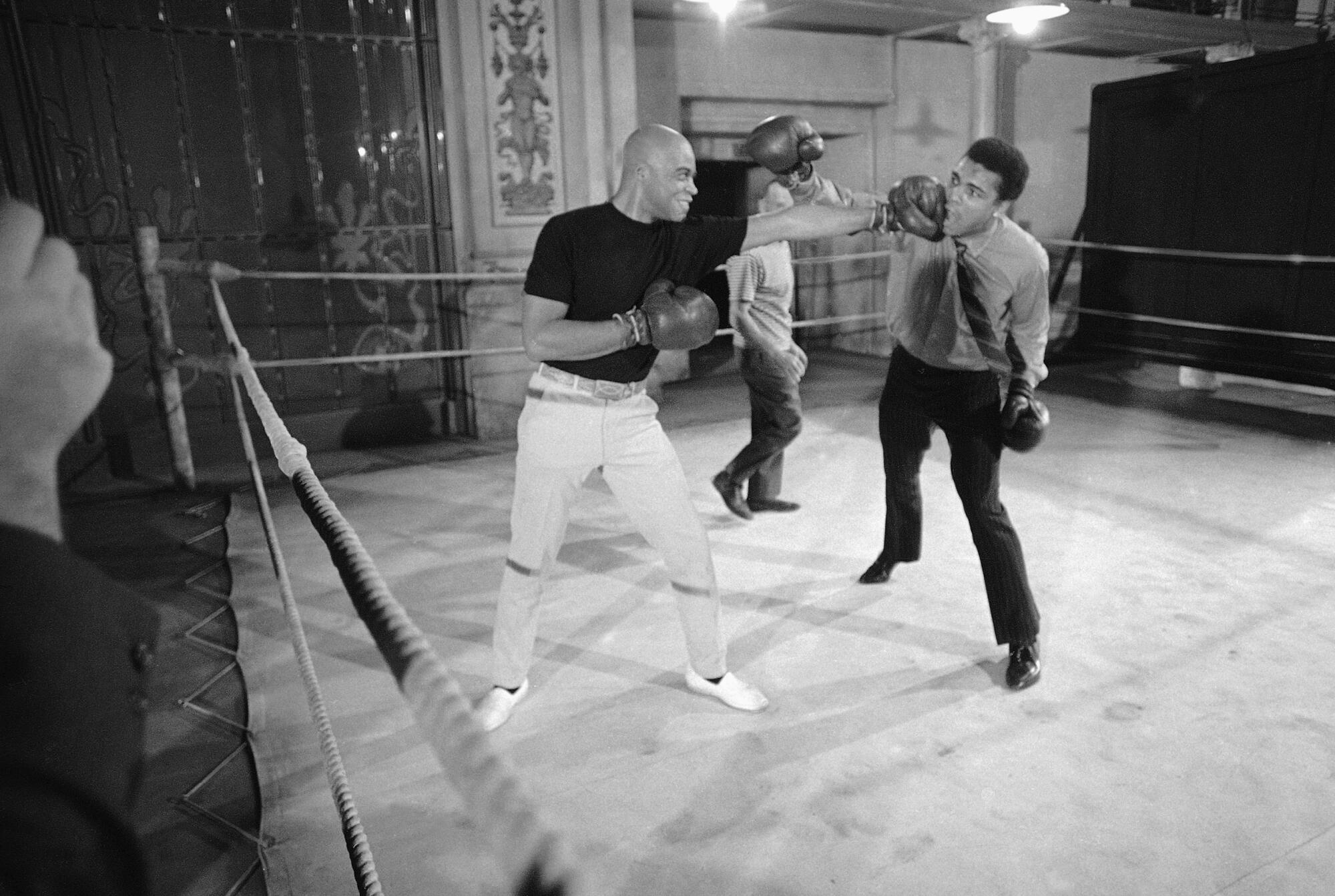
The pair struggled, polishing floors and cleaning theaters. Finally, Jones got his first off-Broadway role, holding a spear in Shakespeare’s “Henry V.”
Jones was a strapping, green-eyed man whose emotive face seemed always at the brink of laughter or fury. He was a natural stage presence. He joined an ensemble cast with Cicely Tyson in the off-Broadway production of Jean Genet’s “The Blacks” in 1961. With the New York Shakespeare Festival, he played Othello in 1963. Television spots and a soap opera role opened up, and he appeared in the film “Dr. Strangelove.”
Tyson’s career spanned seven decades with works such as “Sounder” and “The Autobiography of Miss Jane Pittman.”
He was cast as the lead in “The Great White Hope,” a Broadway play based on the life of boxing champion Jack Johnson. “Superb” is how critic Richard L. Coe summed up Jones’ performance. He called Jones “physically convincing, vocally assured, consistently interesting.”
It was Jones’ breakout role: He won a Tony Award and was nominated for an Academy Award in 1971 for the film version. He went on to win an Emmy, two additional Tony Awards and a Grammy for spoken word. In 2011, he received a lifetime achievement award from the Motion Picture Academy, which cited his “legacy of consistent excellence and uncommon versatility.”
He received Kennedy Center honors in 2002.
“People say that the voice of the president is the most easily recognized voice in America,” President George W. Bush said during the Kennedy ceremonies. “Well, I’m not going to make that claim in the presence of James Earl Jones.”
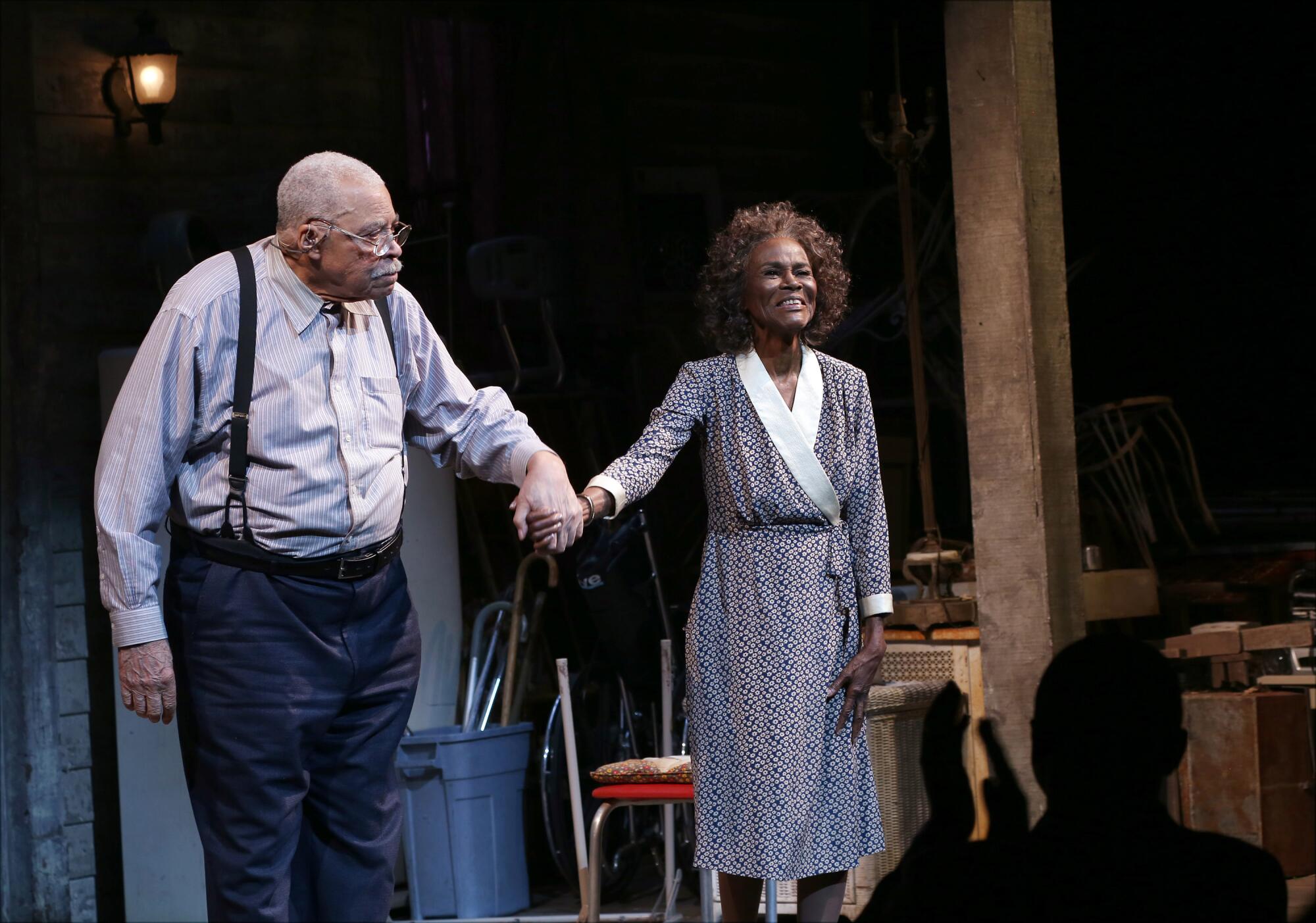
His many film, television and stage credits over the next half a century included the plays “Fences” and “Paul Robeson,” an Emmy-winning lead in the short-lived “Gabriel’s Fire” and the movies “A Piece of the Action,” “Coming to America,” “Field of Dreams,” “Cry, the Beloved Country” and “Exorcist II: The Heretic.” He was the voice of King Mufasa in “The Lion King” and the narrator of “Scary Movie 4.”
Critics sometimes faulted his performances for pomposity. But especially in later years, Jones’ place was secure in the pantheon of renowned Shakespearean-trained film actors.
Even so, he never lost the habits of a struggling wannabe. He took every manner of job, seemingly no role too small or cheesy.
He announced awards shows, narrated documentaries and acted in commercials. He read audio books, pitched for Verizon. He later said his Darth Vader work had taken him a little more than an hour, and he didn’t seem to think much of the role.
The distinguished actor and cultural icon (Vader’s voice!) will be honored by his peers Jan 25.
Some critics complained that he was wasting his considerable talent. How could a man who mastered the works of Anton Chekhov and August Wilson be content booming, “Infidel defilers!” in “Conan the Barbarian”?
Jones insisted that he was a character actor. But beyond this, he offered no ready answer. The best may have come from his second wife, Cecilia Hart, whom he married in 1982. Hart said Jones was simply a workaholic.
Whatever the reason, Jones continued a punishing schedule of stage acting into his 80s, even as he struggled with chronic pulmonary disease and was forced to use an oxygen tank between acts during performances. Yet he reunited with Tyson — reportedly 90 at the time — for the Broadway revival of “The Gin Game” in 2015.
Throughout his career, he played traditionally white roles as well as Black ones. He played the lead in a theatrical production of “On Golden Pond,” Big Daddy in “Cat on a Hot Tin Roof” and Lennie Small in “Of Mice and Men.”
Tyson’s career spanned seven decades with works such as “Sounder” and “The Autobiography of Miss Jane Pittman.”
Although his career spanned periods of intense political activity surrounding race, Jones carved his own path on race issues. He was proud of breaking ground as a Black actor. He talked of the historical degradation of Black people but said one should not be defeated by it. He eschewed identity politics.
Craft came first. “You’ve got to play the culture, not the color,” he would say.
He spoke as a “language appreciator” whose thought still bore the mark of his silent childhood sufferings. He rejected claims of a separate Black cultural identity: Since Black Americans spoke English, they were basically European, Jones argued.
“Language is the only thing that defines culture,” he said.
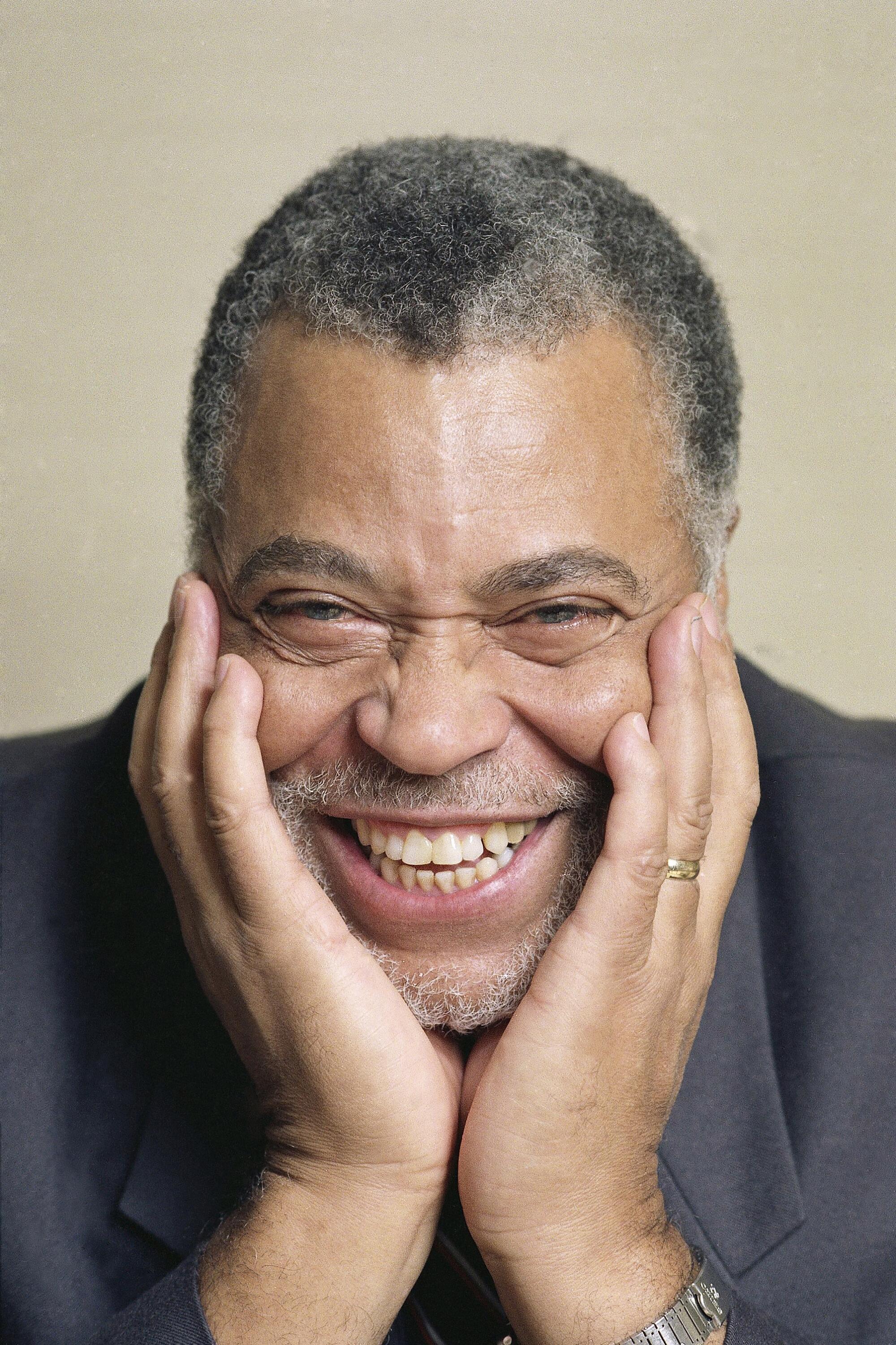
To the extent that he mounted a racial crusade, it was through his acting — specifically his hard-won mastery of spoken language.
“Anybody can carry a picket sign,” he told the Toronto Star in 2013, speaking in his trademark rumble. “But I think you should be able to articulate what that sign means.”
Jones was married to actor Julienne Marie Hendricks from 1968 to 1972. His second wife, Cecilia Hart, died in 2016. He is survived by Flynn Earl Jones , a voice actor.
Leovy is a former Times staff writer.
More to Read
The biggest entertainment stories
Get our big stories about Hollywood, film, television, music, arts, culture and more right in your inbox as soon as they publish.
You may occasionally receive promotional content from the Los Angeles Times.
